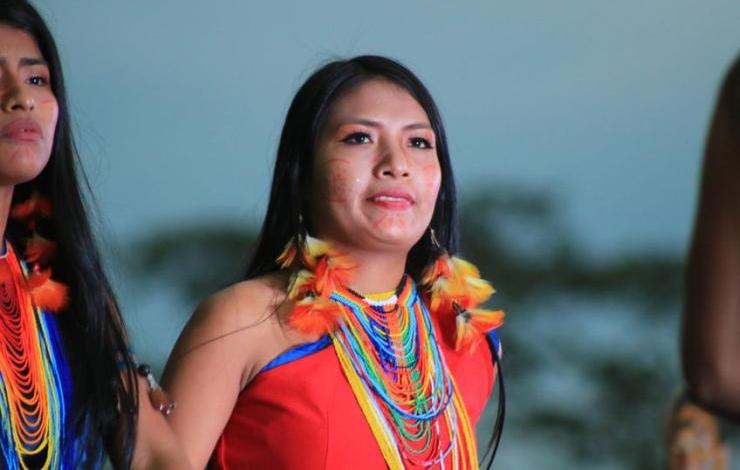Ecuador. The Shuar. The people of the sacred waterfalls.

The Shuar are an Amazonian indigenous people whose culture, life, and spirituality are based on water.
The Shuar people live in the foothills of the Andes, Cutucú and Condor mountain ranges in the Amazonian provinces of Morona Santiago and Zamora Chinchipe in Ecuador. This is an area characterized by abundant rivers that form wonderful waterfalls, which is why the Shuar are called ‘people of the sacred waterfalls’.
According to estimates by the Shuar, their population numbers 110,000 inhabitants, settled in approximately 668 communities.
The Shuar’s wisdom and culture are strictly connected with water. They were born in water, live in water and return to water. Water is the basis of their life and spirituality. The river to the Shuar people is God’s path through the jungle.
Nature offers the Shuar people abundance of rains from February to July and a minor quantity from August to January. This indigenous group never experienced any survival crisis in this generous land. They are a proud, optimistic, and self-confident people.
They are not worried about tomorrow, but they focus on what is urgent and necessary to live in the present.
The Shuar people live in extended families located at a reasonable distance from each other along the large rivers or along the slopes. They do not usually live in urbanized plots but in their farms, where they enjoy freedom and the gifts of nature, especially water.
Water is the main factor to take into consideration when choosing the place for their house or the centre of their community. Sometimes, they have to change place to ensure abundance of land and a better distribution of water.
The two-door Shuar house is strategically located in a dry location within walking distance of a water source. The door which is used exclusively by women gives onto the path that leads to the source of water for family consumption. The Shuar women use water profusely for the preparation of food and the preparation of chicha-nijiamanch, Shuar’s favourite drink, which is offered to visitors or guests as a sign of welcome and friendship.
Their oval houses, built according to the warm-humid environment of the Amazon, have a high ceiling so that the rainwater runs off easily from a roof made of masterfully woven straw.
Women on their way home after collecting fruits, cassava, papachina, pelma, sweet potato, and banana, wash and peel them at a water source in the way that Nunkui taught in mythical times.
The daily bath for adults and children, in the afternoon or after work, is a healthy practice to have a happy rest. Children spend hours playing in the river, like in the best playground.
The Shuar people are not particularly skilled in building bridges so, in case of a swollen river or a difficult path, they look for the narrowest passage and knock down a tree, then with admirable balance they walk across it.
They are instead skilful builders of cedar canoes, their main form of transportation. The Shuar people are great navigators, including children who demonstrate great ability and familiarity with rivers. Their experience with clouds and rains allows them to predict the exact time and intensity of the approaching storm. In the case that they are surprised by a downpour they immediately protect themselves under a makeshift roof or cover themselves with wide leaves so as not to get too wet.
They do not need wells or any irrigation system, the rain is sufficient for their crops. There is no custom of boiling water, because it is enough to mix it with the fermented cassava dough to take it safely.
The Shuar people are unaware of the alarming reality of drought. Their mythology does not mention it and therefore this population does not know how to act in this kind of situation. They do not relate drought to deforestation, but simply to the absence of rains, and they have a blind confidence that rains will arrive again on the new moon. One of the causes of deforestation is the intensification of cattle ranching that requires converting a good part of arable land to grassland. When the torrential downpour falls on the top of the leafy trees, the water arrives gradually on the soil, fertilizing it. Lacking the protection of trees, the water falls to the soil directly and drags the weak layer of humus away, impoverishing the soil. Today the national and transnational extractive plans in the Ecuadorian Amazon are a direct threat to the life of the Shuar people. Extractive activities, in fact, directly affect water through the contamination of oil exploitation, mining activity, and prolonged water stagnation due to hydroelectric dams.
Juan de la Cruz Rivadeneira
Open Photo: Shuar Woman ©Jarnoverdonk/123RF.COM







